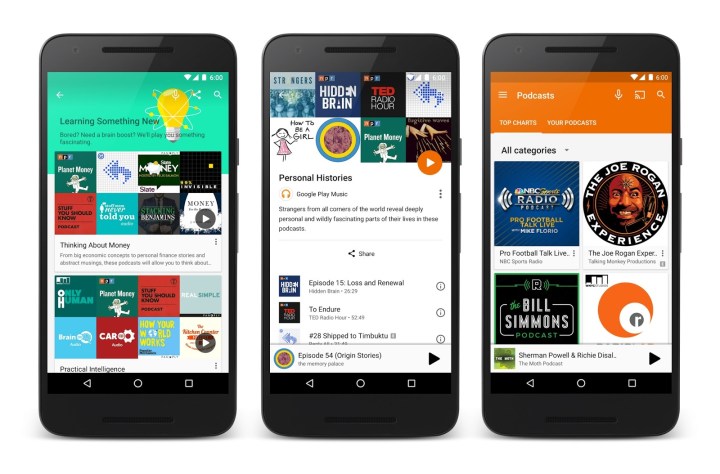
Related: Discover new music. Start your free trial of Amazon Prime now
You can access podcasts in the slide out menu in the Google Play Music Web and Android apps, but it’s only available for users in the U.S. and Canada at the moment. Similar to the “Listen Now” feature that offers contextual playlists based on various factors, Google says podcasts will be offered for “the right moment.”
“Similar to our contextual playlists for music, we want to make it easy to find the right podcast — whether you’re a podcast aficionado or listening for the first time,” Ilia Malkovitch, product manager on Google Play Music, wrote in the blog post announcement.

When you find a podcast you like, you can subscribe to it to automatically download the last several episodes, and you can even be notified when a new episode is released. Google is urging content creators to make their podcasts available through the podcast portal — the same one it unveiled back in October after it initially announced plans to add support.
Google says the feature is rolling out to the Web and on Android — and we can confirm that the Web client now offers podcasts. The
Currently, there are about 20 podcasts in Top Charts — including Radiolab, The Moth Podcast, The Nerdist, and NPR’s Wait Wait … Don’t Tell Me.
Editors' Recommendations
- A new Google Pixel Tablet is coming, but it’s not what you think
- The 6 biggest announcements we expect from Google I/O 2024
- Whatever you do, don’t buy the Google Pixel 7a right now
- This Google Pixel 8a leak just spoiled everything about the phone
- Check your Google Pixel Watch right now for two new features
